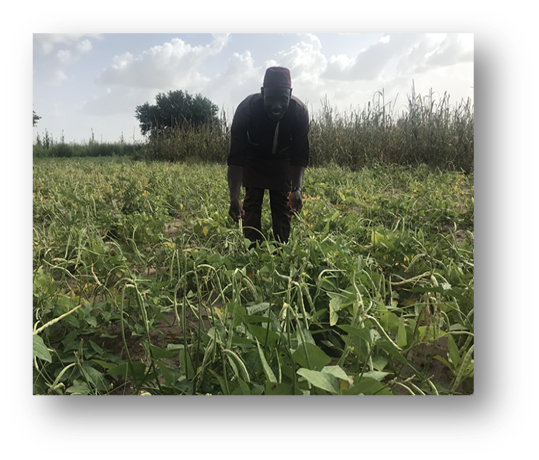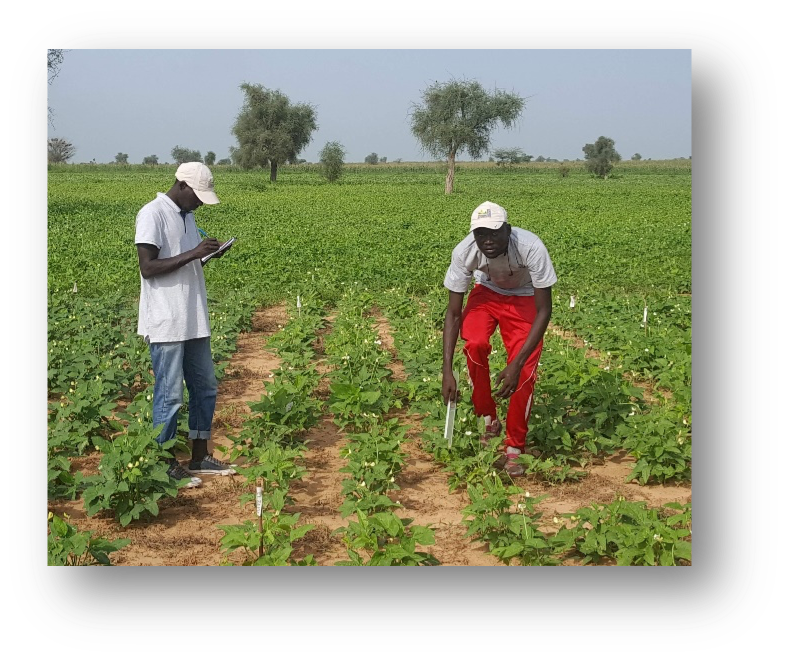Dual-Purpose Cowpea Varieties Provide Farmers a Win-Win in the Senegal Peanut Basin
From the November 2022 Newsletter


Smallholder farmers in the Senegal peanut basin have been introduced to newer and improved dual-purpose cowpea varieties that offer both increased grain and fodder yield as well as fodder quality. These varieties can provide a win-win in the agropastoral farming systems across the peanut basin in Senegal.
Researchers from Kansas State University in collaboration with their counterparts at Senegalese Agricultural Research Institute (ISRA) recently demonstrated two dual-purpose cowpea varieties at several farmer field days. Farmers in attendance were so interested in trying the improved dual-purpose varieties, that several picked a handful of seeds from the fields to plant next year in their fields. The research project, Sustainable Intensification of Dual-Purpose Cowpea Varieties for Enhanced Food and Fodder in Senegal is a part of the Feed the Future Innovation Lab for Legume Systems Research managed by Michigan State University.
The dual-purpose cowpea varieties Leona and Thieye have stay-green property at maturity that increases fodder quality, an important trait for the region. In addition, the dual-purpose varieties are providing dual benefits as fodder yield averaged 255 kilograms per hectare (kg/ha) and grain yield averaged 256 kg/ha higher for the dual-purpose varieties as compared to the locally preferred variety Yacine. Priced at $2.50 per kilogram, farmers are receiving $640 per hectare more in income from grain yield gains alone.
Mr. Badara Diouf is a farmer in the village of Darou Salem, Senegal. Mr. Diouf participated in the on-farm trial in the 2021 growing season and choose to continue planting the dual-purpose cowpea varieties Leona and Thieye on his farm in 2022.
“The new cowpea varieties that were given to me last year perform better than ones we usually plant, they mature early too. For example, last year, with these new varieties [Leona and Thieye], I had greater grain yield, used some of it for food, shared some of it with neighbors and family, and had some seeds for this year planting,” says Badara of his experience with the dual-purpose varieties.
Mr. Ousmane Mbacke is a farmer and a Muslim community leader in Darou Mousty, Senegal. He participated in the on-farm trial in 2021. He was so pleased with results of the 2021 trial that he planted 30 hectares of his land to dual-purpose cowpea varieties in the 2022 growing season.
“So far, results we are getting from this variety trial and the genotype by management study on my farm are amazing. We have also seen the varieties produce greater fodder amounts in addition to increase grain yield. We would like to see these varieties disseminated throughout the region and to other cowpea farmers in Senegal,” explains Ousmane.



 Print
Print Email
Email